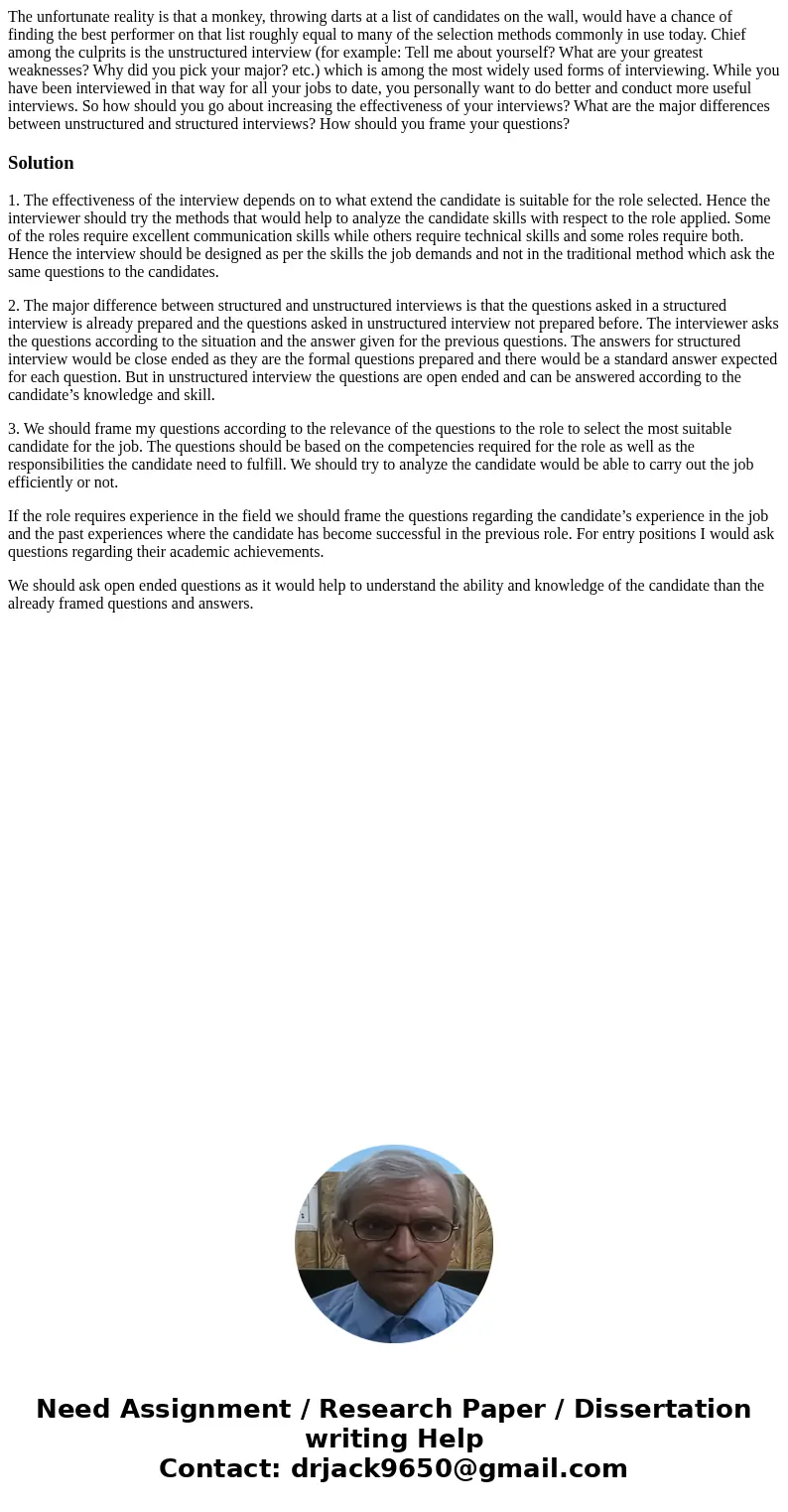The unfortunate reality is that a monkey throwing darts at a
The unfortunate reality is that a monkey, throwing darts at a list of candidates on the wall, would have a chance of finding the best performer on that list roughly equal to many of the selection methods commonly in use today. Chief among the culprits is the unstructured interview (for example: Tell me about yourself? What are your greatest weaknesses? Why did you pick your major? etc.) which is among the most widely used forms of interviewing. While you have been interviewed in that way for all your jobs to date, you personally want to do better and conduct more useful interviews. So how should you go about increasing the effectiveness of your interviews? What are the major differences between unstructured and structured interviews? How should you frame your questions?
Solution
1. The effectiveness of the interview depends on to what extend the candidate is suitable for the role selected. Hence the interviewer should try the methods that would help to analyze the candidate skills with respect to the role applied. Some of the roles require excellent communication skills while others require technical skills and some roles require both. Hence the interview should be designed as per the skills the job demands and not in the traditional method which ask the same questions to the candidates.
2. The major difference between structured and unstructured interviews is that the questions asked in a structured interview is already prepared and the questions asked in unstructured interview not prepared before. The interviewer asks the questions according to the situation and the answer given for the previous questions. The answers for structured interview would be close ended as they are the formal questions prepared and there would be a standard answer expected for each question. But in unstructured interview the questions are open ended and can be answered according to the candidate’s knowledge and skill.
3. We should frame my questions according to the relevance of the questions to the role to select the most suitable candidate for the job. The questions should be based on the competencies required for the role as well as the responsibilities the candidate need to fulfill. We should try to analyze the candidate would be able to carry out the job efficiently or not.
If the role requires experience in the field we should frame the questions regarding the candidate’s experience in the job and the past experiences where the candidate has become successful in the previous role. For entry positions I would ask questions regarding their academic achievements.
We should ask open ended questions as it would help to understand the ability and knowledge of the candidate than the already framed questions and answers.

 Homework Sourse
Homework Sourse